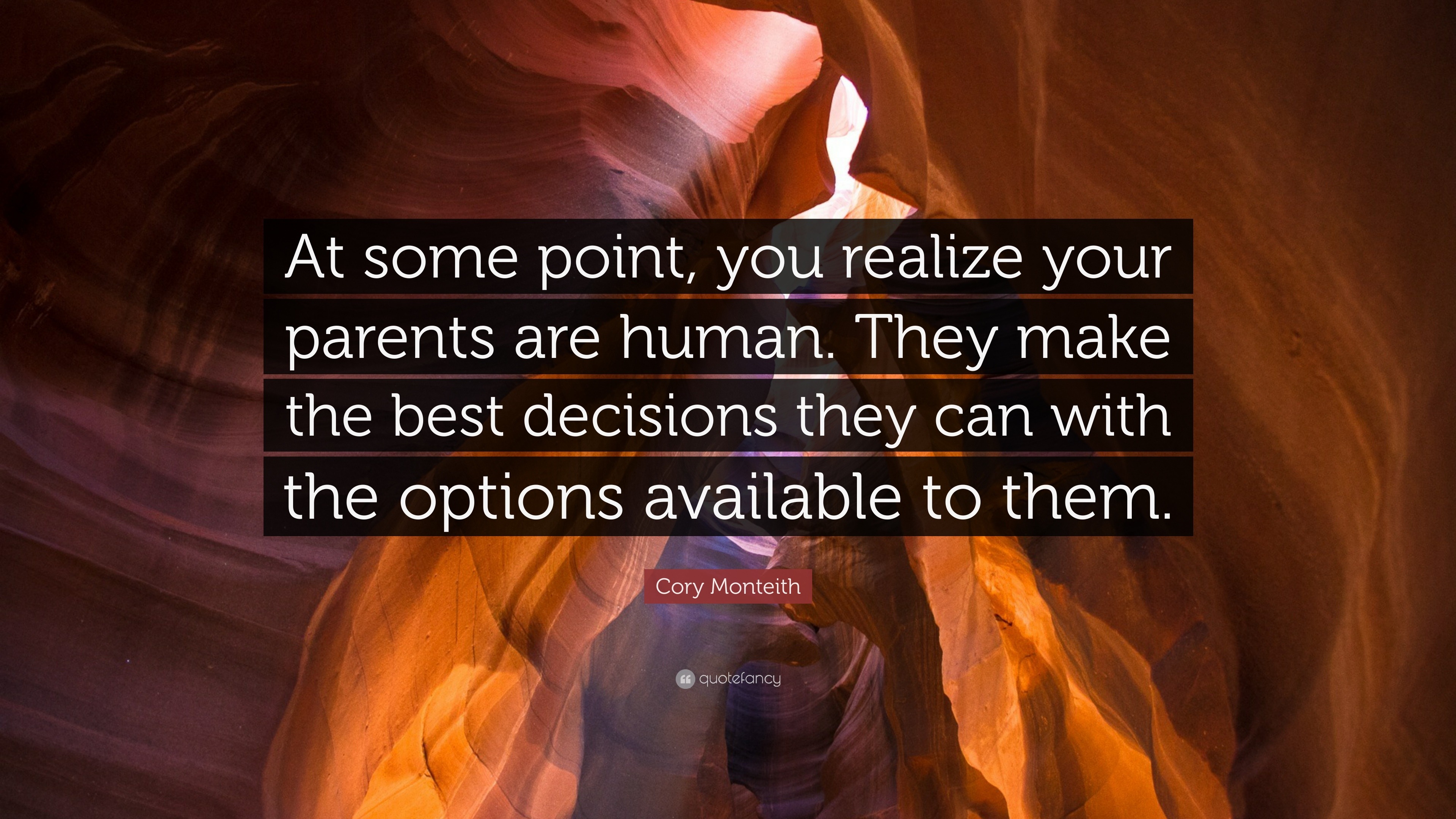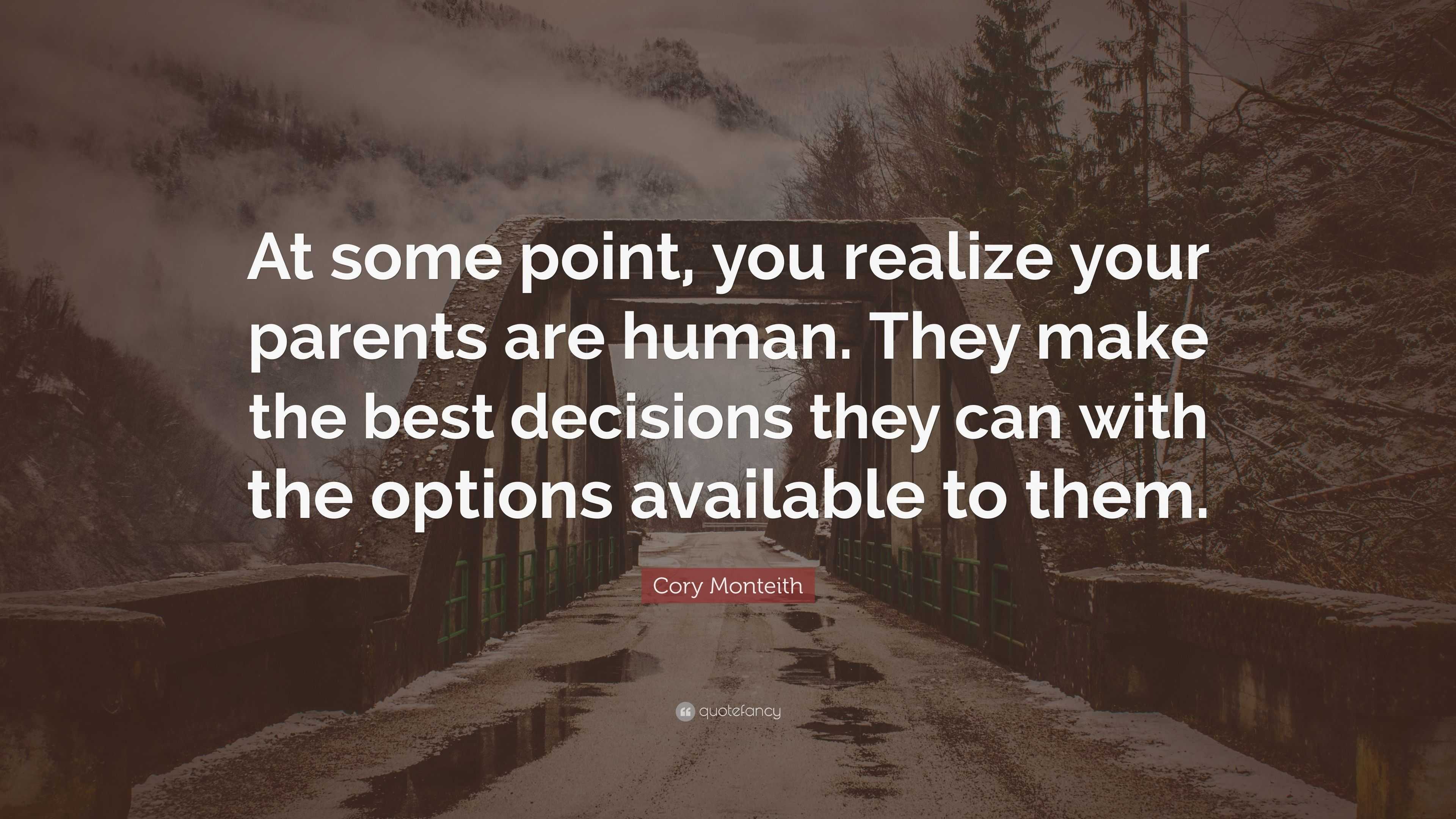Parents Are Human, Embracing Imperfect Parenthood
Parents are human, and acknowledging this simple truth is the first step toward a more fulfilling and less stressful parenting journey. This means accepting that mistakes will happen, exhaustion is inevitable, and the emotional rollercoaster is part of the ride. We’ll explore the realities of parenthood, celebrating the joys and navigating the challenges with honesty and self-compassion.
This exploration delves into the multifaceted world of parenting, examining the impact of societal pressures, the spectrum of parental emotions, diverse parenting styles, and the ever-evolving parent-child relationship. We’ll uncover how personal experiences shape our approach to raising children and discover practical strategies for building resilience and navigating the inevitable difficulties. Ultimately, we aim to celebrate the messy, beautiful, and profoundly human experience of parenthood.
The Imperfect Parent: Embracing Human Fallibility: Parents Are Human
Parenthood is a journey filled with unexpected twists and turns, a continuous learning process where mistakes are inevitable. The pressure to be the “perfect” parent, often fueled by societal expectations and idealized portrayals in media, can be overwhelming. This pressure often overshadows the reality of raising children: a messy, beautiful, and profoundly human experience.
Acknowledging Parental Imperfections

Every parent makes mistakes. Forgetting a child’s school project, losing patience during a tantrum, or struggling to balance work and family life are all common experiences. These imperfections, far from being failures, are opportunities for growth and learning. For instance, forgetting a school project might lead to a conversation about responsibility and time management, fostering a stronger parent-child bond.
Similarly, a moment of lost patience can prompt reflection on communication styles and emotional regulation. Children learn resilience and empathy by witnessing their parents’ ability to acknowledge and learn from their mistakes.
Societal Expectations and the Pursuit of an Ideal
Society often projects an unrealistic image of perfect parenting, contributing to feelings of inadequacy and self-doubt among parents. This pressure to adhere to an unattainable ideal can lead to stress, anxiety, and even feelings of failure. The constant comparison to other parents, fueled by social media and cultural narratives, only exacerbates these feelings. It’s crucial to remember that there’s no one-size-fits-all approach to parenting, and striving for perfection sets parents up for inevitable disappointment.
The Emotional Landscape of Parenthood
The emotional spectrum of parenthood is vast and dynamic. It’s a rollercoaster of intense joy, profound love, overwhelming exhaustion, and moments of profound frustration. Understanding and accepting this emotional complexity is crucial for navigating the challenges of raising children.
Navigating the Emotional Rollercoaster
One day, you’re basking in the glow of your child’s first steps, filled with immense pride and joy. The next, you’re grappling with sleep deprivation, feeling overwhelmed by the demands of childcare, and questioning your abilities. These contrasting emotions are normal and valid. The key is to practice self-compassion, recognizing that these intense feelings are part of the human experience of parenthood.
Allowing yourself to feel the full range of emotions – the highs and the lows – without judgment is essential for emotional well-being.
The Importance of Self-Compassion
Self-compassion involves treating yourself with the same kindness and understanding you would offer a friend facing similar challenges. It’s about acknowledging your limitations, forgiving yourself for mistakes, and recognizing that you’re doing the best you can. Practicing self-care, such as prioritizing sleep, engaging in hobbies, and seeking support from loved ones, are crucial for maintaining emotional resilience throughout the parenting journey.
Parenting Styles and the Human Element
Various parenting styles exist, each influenced by a unique blend of personal experiences, cultural background, and individual philosophies. Understanding these diverse approaches helps to appreciate the human element behind each choice.
Diverse Approaches to Child-Rearing
Authoritative parenting, characterized by high expectations and warmth, often fosters independence and self-reliance. Permissive parenting, prioritizing a child’s autonomy, may lead to creativity but potentially less structure. Authoritarian parenting, emphasizing obedience and control, can instill discipline but might stifle a child’s emotional expression. Ultimately, the most effective parenting style is one that aligns with a parent’s values and the unique needs of their child.
There is no universally “correct” approach.
A Fictional Scenario: Contrasting Parenting Styles
Imagine two families, the Smiths and the Johnsons. The Smiths employ an authoritative style, setting clear expectations while nurturing their children’s individuality. Their children are generally well-adjusted, confident, and responsible. The Johnsons, on the other hand, utilize a more permissive approach, allowing their children considerable freedom. Their children are creative and independent but might struggle with self-discipline and structure.
Both parenting styles have their strengths and weaknesses, illustrating that there’s no single “right” way to raise children.
The Parent-Child Relationship: A Dynamic Bond
The parent-child relationship is a constantly evolving dance, marked by significant shifts in dynamics throughout different life stages. Understanding these changes allows for a more adaptable and supportive parenting approach.
A Chronological Account of a Parent-Child Relationship, Parents are human
From the initial bond formed during infancy, characterized by dependency and nurturing, the relationship gradually transforms. Toddlerhood brings challenges of autonomy and exploration, followed by the complexities of childhood friendships and school interactions. Adolescence marks a period of significant emotional and physical change, often testing the boundaries of the parent-child relationship. Eventually, the relationship evolves into a more mature and equal partnership, characterized by mutual respect and understanding.
Each stage presents unique challenges and opportunities for growth, strengthening the parent-child bond over time.
Parental Mistakes as Opportunities for Growth
Parental mistakes, inevitable in the parenting journey, can ironically serve as catalysts for stronger parent-child relationships. Open communication, apologies, and shared learning from mistakes foster empathy and understanding. These experiences create opportunities for both parents and children to grow and develop a deeper connection built on honesty and mutual respect.
The Impact of Personal Experiences on Parenting
A parent’s past experiences, both positive and negative, significantly shape their approach to raising children. Self-awareness of these influences is crucial for effective parenting.
Ever wondered about Allisen Corpuz’s family life? You can find some information about her parents by checking out this link: allisen corpuz parents. Speaking of parents and online access, managing school information is easier with the parent portal ecisd ; it’s a great resource for checking grades, assignments, and upcoming events. It really streamlines communication between home and school, making things a lot smoother for everyone involved.
A Fictional Story: Past Trauma’s Influence
Sarah, having experienced a neglectful childhood, is hyper-vigilant about her children’s needs. She provides them with abundant love and attention, fearing a repeat of her past. This overcompensating behavior, while rooted in good intentions, can inadvertently create dependency. By acknowledging her past trauma and seeking therapy, Sarah gains insight into her parenting style, learning to balance her protective instincts with fostering her children’s independence.
Leveraging Personal Experiences for Deeper Connection

Parents can use their personal experiences to connect with their children on a deeper level. Sharing relatable stories, acknowledging vulnerabilities, and demonstrating resilience can create a stronger bond built on trust and empathy. This vulnerability allows children to see their parents as human beings, not just authority figures, fostering a more authentic and meaningful relationship.
Building Resilience in the Face of Parenting Challenges

Parenthood is inherently challenging. Building resilience is crucial for navigating the inevitable difficulties and maintaining emotional well-being.
So, you’re curious about Allisen Corpuz’s family? You can find some information about Allisen Corpuz parents online, though details are often limited for privacy reasons. Speaking of online portals, managing school stuff is much easier now, especially with the parent portal ecisd ; it’s a lifesaver for checking grades and communicating with teachers. It’s definitely worth exploring if you have kids in the ECISD system.
Coping Mechanisms and Support Networks
Parents employ various coping mechanisms to navigate the stresses of parenthood. These include seeking support from partners, family, friends, or support groups. Prioritizing self-care activities like exercise, meditation, or pursuing hobbies is also vital. When needed, seeking professional help from therapists or counselors provides valuable guidance and support in managing stress and addressing emotional challenges.
Practical Strategies for Building Resilience
Building resilience involves developing a mindset that embraces challenges as opportunities for growth. This includes practicing mindfulness, setting realistic expectations, celebrating small victories, and prioritizing self-care. Learning effective stress management techniques, such as deep breathing exercises or progressive muscle relaxation, can significantly improve emotional well-being.
Celebrating the Imperfect Journey
Parenthood is a messy, unpredictable, and profoundly rewarding journey. Embracing the imperfections and celebrating the unique connection with children is essential.
The Beauty of Human Connection in Parenthood
The laughter shared during bedtime stories, the quiet moments of connection during a child’s illness, the pride felt during a child’s accomplishment – these are the moments that define the beauty of parenthood. These moments, often overlooked in the midst of daily challenges, are the treasures that enrich the parent-child bond. Cherishing these experiences, even the messy ones, transforms the parenting journey into a celebration of human connection.
Heartwarming and Humorous Anecdotes
The spilled milk, the midnight diaper changes, the endless stream of “why” questions – these seemingly mundane moments often hold the most endearing memories. The child who insists on wearing mismatched socks, the spontaneous hug that melts away all frustrations, the silly dance shared during a rainy afternoon – these are the moments that remind parents of the joy and humor woven into the fabric of parenthood.
Ultimately, the journey of parenthood is a deeply personal and uniquely human experience. It’s a journey filled with both incredible highs and inevitable lows, a testament to the resilience and adaptability of the human spirit. By embracing our imperfections, learning from our mistakes, and fostering strong support networks, we can navigate the challenges and cherish the moments that make parenthood such a rewarding, albeit sometimes chaotic, adventure.
Remember, it’s okay to not be perfect; it’s the imperfect moments that often create the strongest bonds.
Share this content:
